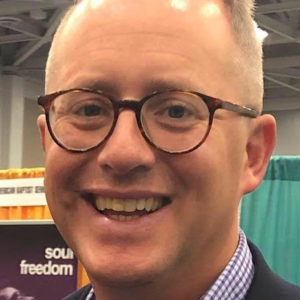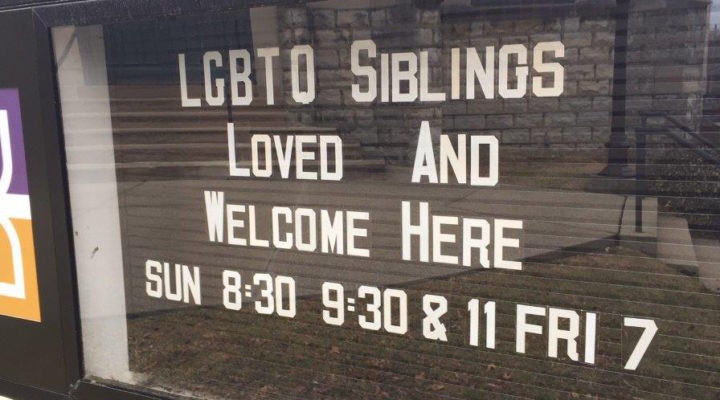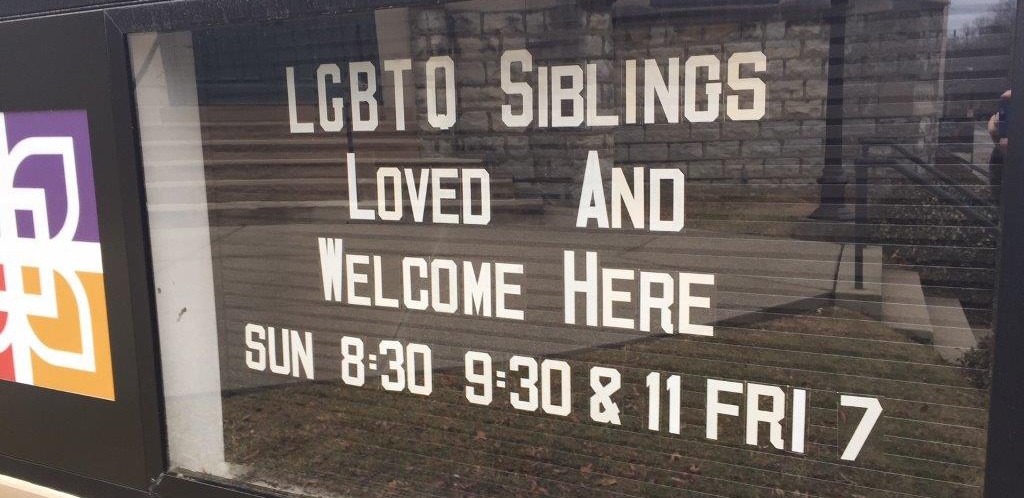The Association of Welcoming and Affirming Baptists will mark a pivotal moment in its history this week with an online celebration of five congregations booted from their regional associations a quarter century ago.
Four of the American Baptist Churches USA congregations were in California’s Bay area and a fifth was located in Ohio. All were open to LGBTQ inclusion and had joined the AWAB, which had been founded in 1993.

Brian Henderson
“It was the establishment of AWAB that seemed to create much more angst and concern within ABC regional life,” said Brian Henderson, national coordinator of AWAB and minister at First Baptist Church of Denver.
The association will host a virtual commemoration at 8:30 p.m. Eastern on Wednesday, Jan. 6 — the same date in 1996 that First Baptist Church in Berkeley, Lakeshore Avenue Baptist Church in Oakland, San Leandro Community Church and New Community of Faith in San Jose were disfellowshipped by what was then called the American Baptist Churches of the West.
First Baptist Church in Granville, Ohio, was ejected from the Columbus Baptist Association in 1995 after it joined AWAB that year. The congregation since has changed its name to the United Church of Granville.
The emotionally driven opposition to the association was as surprising as it was forceful, said James Hopkins, the pastor — then and now — of Lakeshore Baptist Church.
Lakeshore was a charter member of AWAB, prompting internal questions about potential problems with its regional association.
“I said no, no — no worries,” he recalled. “Wrong, I was.”
Given the size of the association, it really didn’t make any sense, he added. “We were 10, 15 maybe 20 churches. That’s tiny. Is that a threat to the denomination? That was the narrative.”

James Hopkins
Lakeshore and the other churches were told they wouldn’t face action if they quit AWAB. “But we couldn’t do that,” he said. “We took our beliefs seriously about the church being a place of tangible welcome and that there were ways of reading the Bible that were not condemning. At that point we knew it had become symbolically important just to exist.”
The vote expelling the four churches came at a time when other faith groups were wrestling with if and how to welcome LGBTQ Christians.
According to a Jan. 12, 1996, article by Baptist News Global predecessor Associated Baptist Press, ABC-USA in 1995 threatened to break ties with the Baptist Peace Fellowship of North America when the latter adopted a resolution supporting inclusion. The Southern Baptist Convention disfellowshipped two North Carolina congregations in 1992 for welcoming and affirming gays and lesbians. They were Binkley Memorial Baptist Church in Chapel Hill and Pullen Memorial Baptist Church in Raleigh.
“This kind of struggle, this kind of faith and love, this is what it’s all about. This is a church,” M. Mahan Siler Jr., then-pastor at Pullen, told The Washington Post in June 1992.
Meanwhile, there were efforts in some quarters to accommodate AWAB members. According to ABP, some ABC-USA leaders were exploring ways to keep inclusive churches in the denomination without regional memberships.
And they found it, Hopkins said, by connecting disfellowshipped churches with distant regions. “We just drew straws. First Baptist Berkeley went to ABC in Wisconsin, New Community of Faith went with Philadelphia. Granville and San Leandro went to Rochester, and Lakeshore with Metro New York. Now, we’re all with the Evergreen Baptist Association, which didn’t even exist when all these things happened.”
Formally recognizing and celebrating these churches serves to express gratitude for their challenges and AWAB’s growing ministry, Henderson said. “Their struggles have brought us to where we are today. They have brought us to a place some folks couldn’t have imagined at that time.”
That place includes more relationships with some Cooperative Baptist Fellowship congregations and being asked to consult with ABC-USA regions, he said. AWAB reports 118 member congregations in the U.S. and Canada and two campus ministries.
“The trajectory of the last 25 years has resulted in a greater openness to conversation and to creating safe spaces than we have ever seen before,” Henderson said. “But there are still challenges.”
Among them are social, political and theological climates hostile to LGBTQ Christians and their families in churches and denominations. AWAB attempts to promote the concepts of Baptist roots and identity to move the needle on those issues. “We must continue to be vigilant in creating those safe spaces,” Henderson said.
The appeal to Baptist identity and belief in Bible, soul, church and religious freedom always were part of the argument against disfellowshipping churches, Hopkins said. “But in this matter, they argued that biblical authority trumps Baptist freedoms, anytime.”
The congregations that joined AWAB have no argument against scriptural authority because it, too, supports their cause, he declared. “You can build a fine biblical case for a much more inclusive and welcoming church.”


